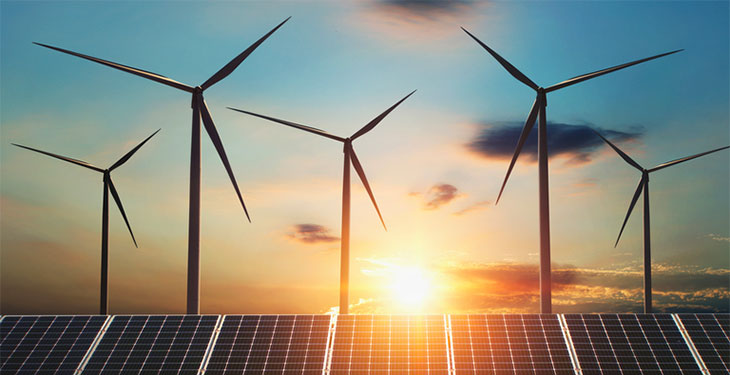Currently in Romania there is no coherent support system for the installation of new renewable capacities to support the achievement of the 30.7% target, assumed for 2030, shows the latest analysis conducted by Bankwatch. The report analyzes the renewable energy sector in Romania, especially the legislative changes, and appeals to the need for stability and predictability for the development of the sector.
Limiting the support scheme through green certificates to installations put into operation by 2016, without replacing it with other forms of encouragement (direct bilateral contracts or contracts for difference), has led to the stagnation of the installed capacity of renewable forms of energy. At the same time, frequent legislative changes, four in seven years, have led to the prejudice of producers and the decrease of investor confidence. Thus, in the period 2016-2020 no new renewable energy projects were inaugurated, although in recent years the costs of investing in these technologies have decreased. Romania has in store the same renewable energy capacity since 2015: 10,700 MW, of which 4,800 MW fall under the green certificate scheme.
The analysis also highlights the fact that the renewable energy target assumed by Romania for 2030 is lower than the one achieved in the period 2007-2020 (from 16.4% to 24%), although the available European funding sources are more consistent and the cost of installation of renewable technologies is lower compared to the previous period. At the same time, the fact that Romania has reached its renewable energy target for 2020 since 2015 shows that our country has a substantial renewable potential that will remain untapped. Another problem identified is the inconsistency of strategic documents. The National Plan for Energy and Climate Change provides for an installed capacity of 3,700 MW higher for wind and solar in 2030 compared to the development plan for the electricity transmission network prepared by Transelectrica.
Regarding prosumers, the support program launched by the Administration of the Environment Fund in 2019 failed to increase the number of those who produce and consume energy at the same time. The program faced delays or inconsistent administrative decisions that discouraged beneficiaries from accessing funding. Through the Casa Verde Fotovoltaice program, in June 2020, 12,718 beneficiaries out of a total of 26,000 applicants managed to obtain approvals, and in May there were only 500 prosumers in Romania.
“In the context in which renewable energy is supported at European and global level, Romania has the opportunity to modernize its energy system with new and non-polluting technologies. Decarbonising the economy is a necessity to reduce greenhouse gases and environmental impact, and replacing fossil fuels with green technologies is the sure way to achieve these goals. The Romanian authorities must be aware of this and establish a fair and predictable legislative framework for the sustainable development of the renewable industry,” said Laura Nazare, coordinator of the campaign for energy transition at Bankwatch Romania and author of the report.
